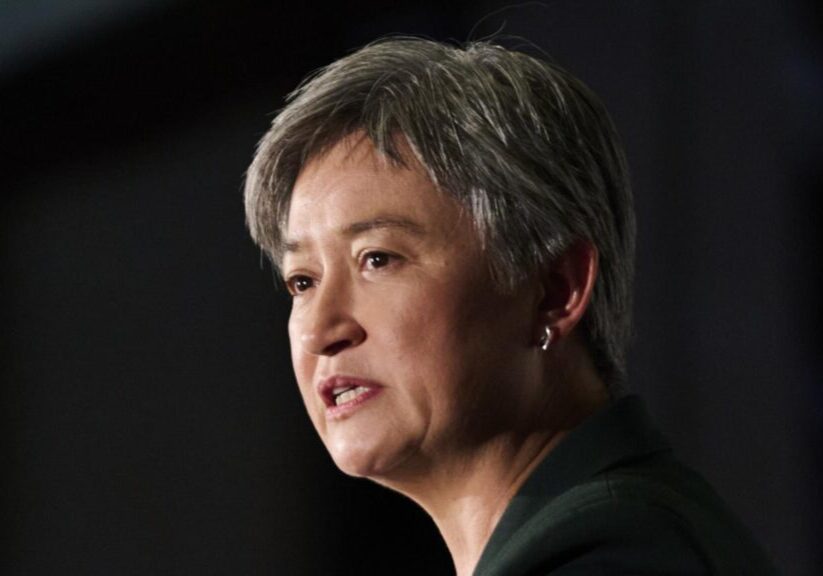IN THE MEDIA
Balance academic freedom with rights of students
Dec 22, 2008 | Colin Rubenstein
Colin Rubenstein
The Australian – December 22, 2008
THE Rudd Government is looking at the recommendations of the Bradley report as it seeks to make substantial reforms to the nation’s higher education sector as part of its education revolution, promised before the federal election last year.
The report does contain some good ideas well worth considering. But while the Government looks at Denise Bradley’s report, it should also be re-examining a different report, not because it makes good recommendations but because it does not. And if it wants to have an education revolution that genuinely improves the atmosphere and academic conditions for all students on Australian campuses, it should be looking to rectify the missed opportunity represented by that report.
The report in question comes from the Senate Standing Committee on Education, Employment and Workplace Relations’ inquiry into academic freedom.
The committee majority’s report, released earlier this month, made no recommendations and hinted strongly that the whole exercise was a waste of time.
The partisan tone of the majority was set by committee chairman Gavin Marshall when, in the second paragraph of the preface, he singled out Liberal students’ submissions and testimony for creating “a strong undergraduate tone”, a theme that took up large portions of the report.
The majority report’s politicised approach to the inquiry is disappointing as there are legitimate and serious issues regarding bias and intimidation at Australian universities that concern students, and should concern legislators of all political stripes.
This is not a left v right issue.
As the more thoughtful minority report shows, governments can encourage specific, sensitive measures that can minimise problems of bias without impinging on the academic freedom of lecturers or the autonomy of universities.
Academic freedom is essential and absolutely must be protected in Australia’s universities.
However, this concept does not give academics the freedom to do absolutely anything they wish in the classroom setting.
Freedom must be balanced by the rights of the students to an appropriate – meaning professional and unbiased – education that fairly presents the best empirical evidence and fully explores a variety of relevant, evidence-based perspectives. This obvious point is being denied today by some university lecturers who declare that presenting blatantly political or one-sided courses or lectures is justified to challenge students’ preconceptions.
Unfortunately, absurdly, the Senate committee majority joined these ideologues in arguing that academic freedom applied purely to faculty and had no relevance to students. The committee majority’s strictly partisan focus ignored evidence submitted by the Australia/Israel and Jewish Affairs Council and others of not just ideological bias but also of anti-Semitic or anti-Israel bias, harassment and even intimidation at universities across the country.
At Monash University, for example, a first-year politics course on fundamentalism and global violence had two lectures on Jewish fundamentalism, including one on the power of the “US Jewish lobby”, but whitewashed the issue of Islamist fundamentalism.
At the University of NSW, a lecturer labelled a student the “resident Zionist” merely because she was Jewish, then publicly disparaged her views whenever she spoke. At Murdoch University, a guest lecturer and tutor for a first-year world politics course labelled Israel an apartheid state, openly identified herself as amember of the Friends of Palestine and promoted the group during her lecture.
This last example neatly embodies a host of problems: first, the improper use of guest lecturers; second, a lecturer using class time to promote an outside political organisation.
Perhaps most disconcerting, this type of inappropriate behaviour too often occurs in first-year courses, where students are at their most impressionable.
Despite this and other evidence submitted, the majority report cavalierly dismissed the concerns of bias because of what it said were an insignificant number of complaints and submissions to the committee.
Among other inconsistencies, this conclusion ignored evidence provided to the committee that students were unfamiliar with the complaints processes – which might differ across campuses – and that students refrained from complaining of bias or intimidation because they feared doing so would adversely affect their marks or reputation with lecturers.
The majority report also made no recommendation on the potentially serious issue of foreign countries funding university research centres.
AIJAC’s submission recalled the issue of foreign funding of centres at two universities that might have inappropriately influenced the direction, research and conclusions of those centres.
That is exactly the type of problem the Government could address through neutral recommendations, which could ameliorate such concerns. First, anonymous donations should be banned and universities should have to publish their sources of funding, as well as any conditions attached to such gifts.
Further, the Government could consider regulations controlling contributions from corporate and foreign donors with a material interest in the subject they were funding. Some of these could be similar to a tobacco company funding a health department that researched the effects of smoking.
The majority’s conclusion that all these are issues to be addressed only at the university level is nonsense. Universities should be the first, and maybe final, check. But there is also a role for government in encouraging transparency and accountability in publicly funded universities.
As part of its education revolution, the Government can and should be responsible and proactive in encouraging sensible and prudent efforts, preferably by universities themselves, to improve teaching outcomes at taxpayer-funded tertiary institutions. Importantly, this can be accomplished without compromising academic freedom or institutional independence.
The committee majority disappointingly allowed rampant political partisanship to scuttle an opportunity to contribute to that worthwhile, if sensitive, effort.
Hopefully, its cabinet colleagues will be wiser and responsibly address the real issues of ensuring a quality academic environment for students as well as staff that the committee majority unfortunately chose to denigrate or ignore.
Colin Rubenstein is executive director of the Australia/Israel and Jewish Affairs Council, which provided written and oral submissions to the inquiry into academic freedom. He previously taught politics at Monash University for many years.
http://www.theaustralian.news.com.au/story/0,25197,24831525-7583,00.html
Tags: Anti-Zionism











